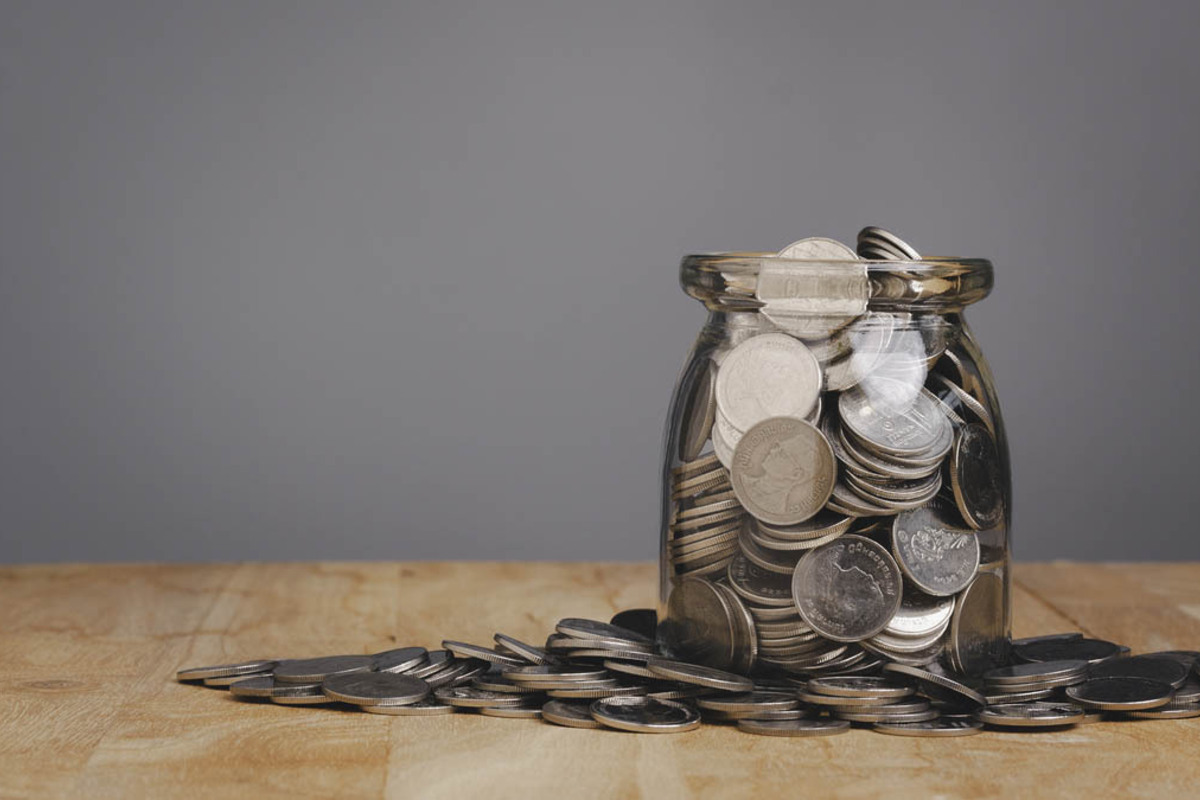

Economics; Wilson Sheehan Lab for Economic Opportunities (LEO)
Professor of Economics

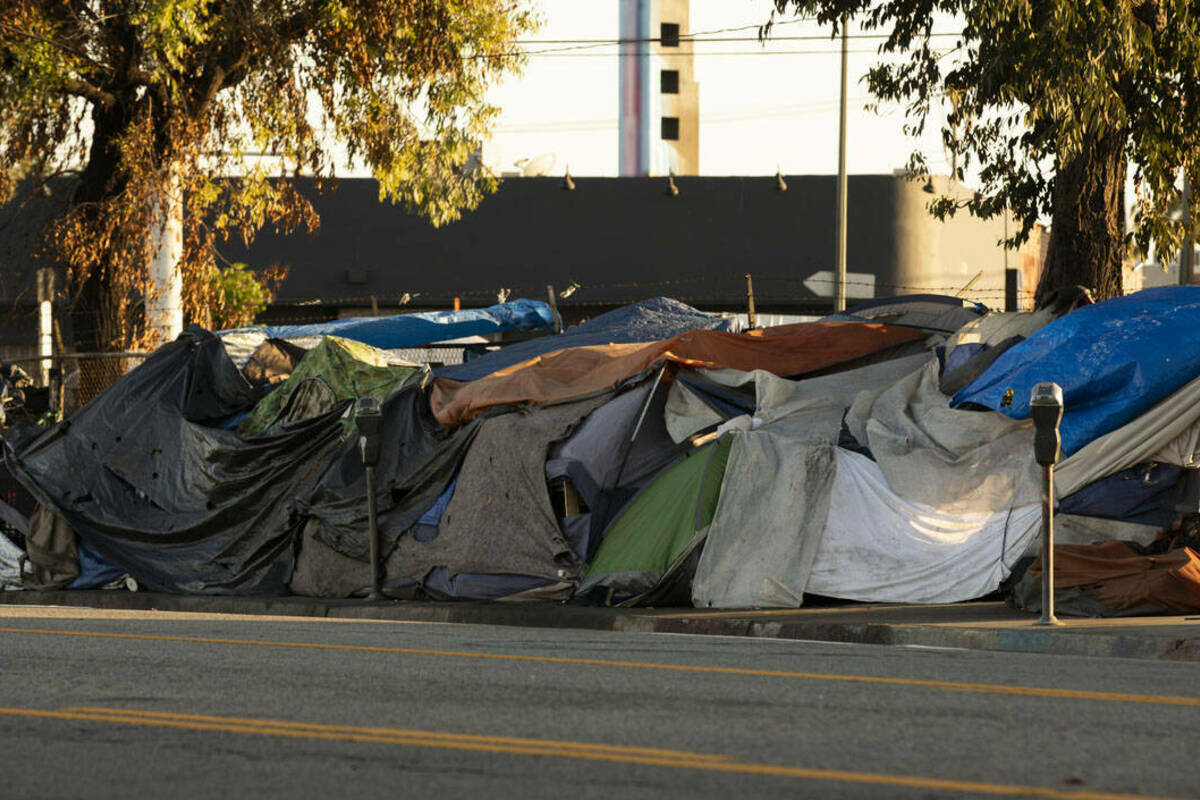
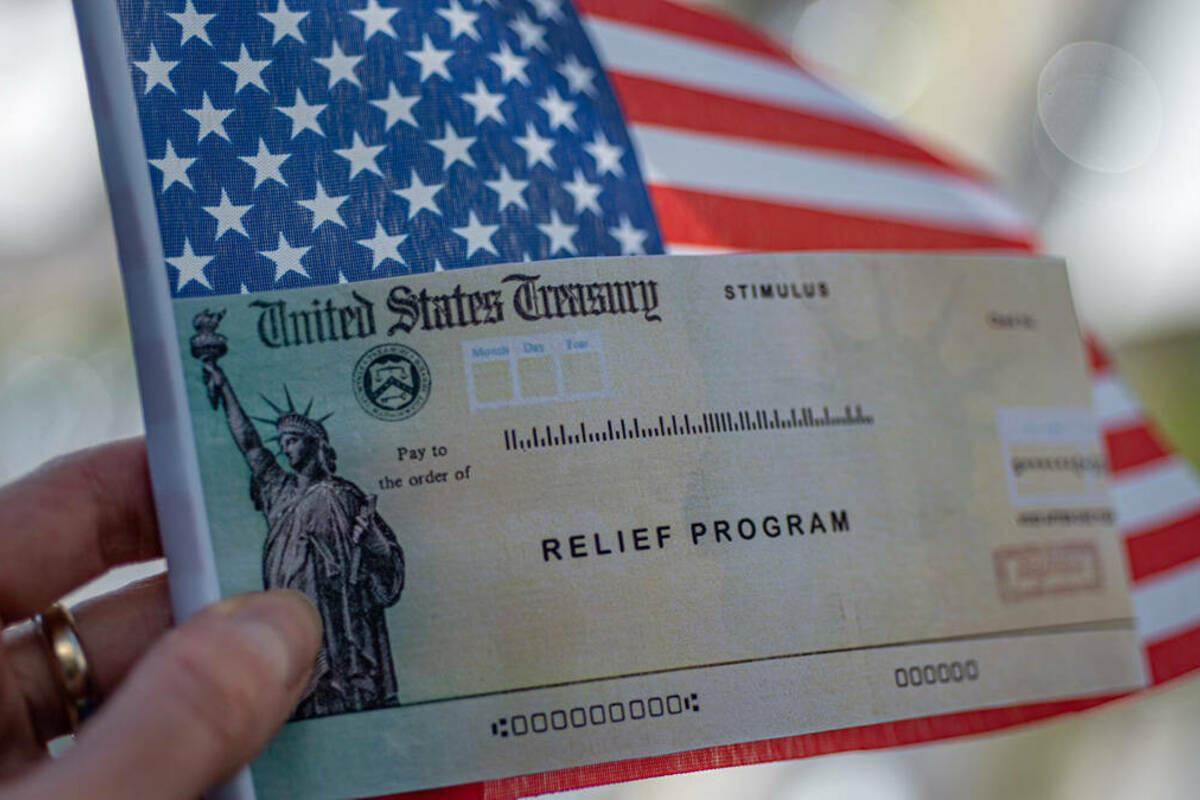
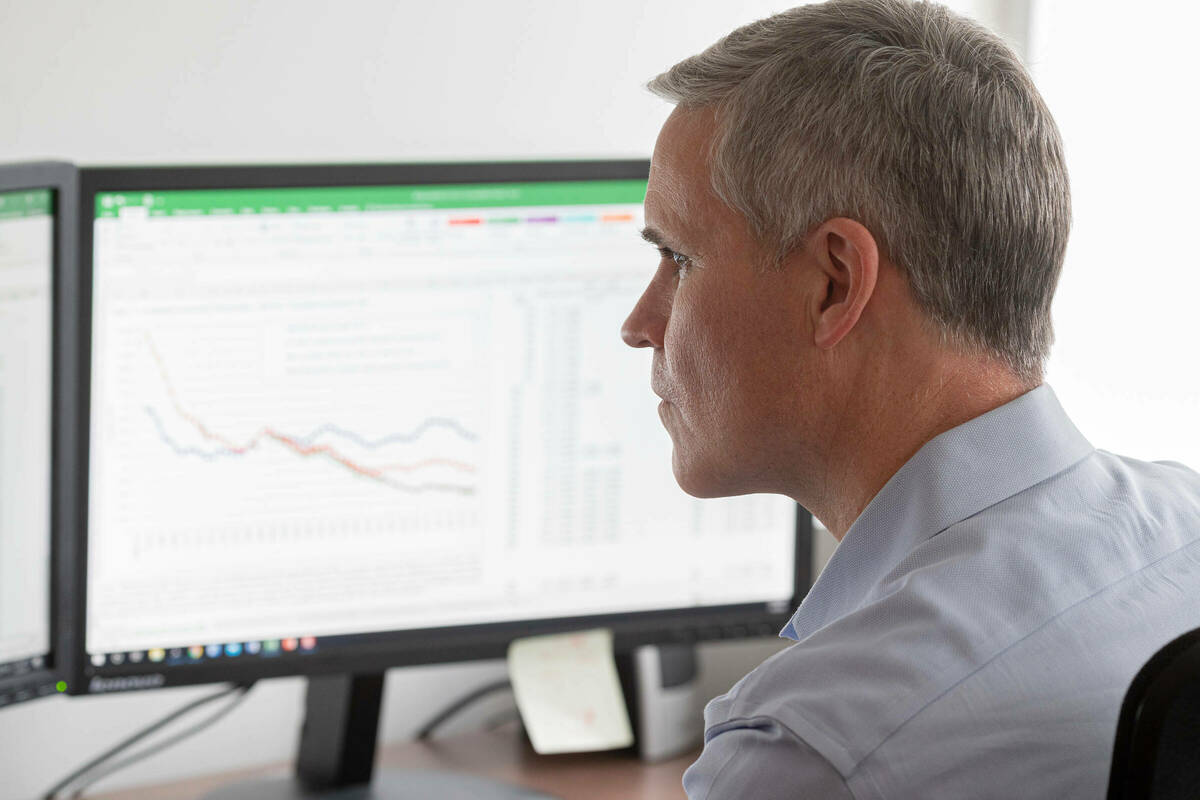
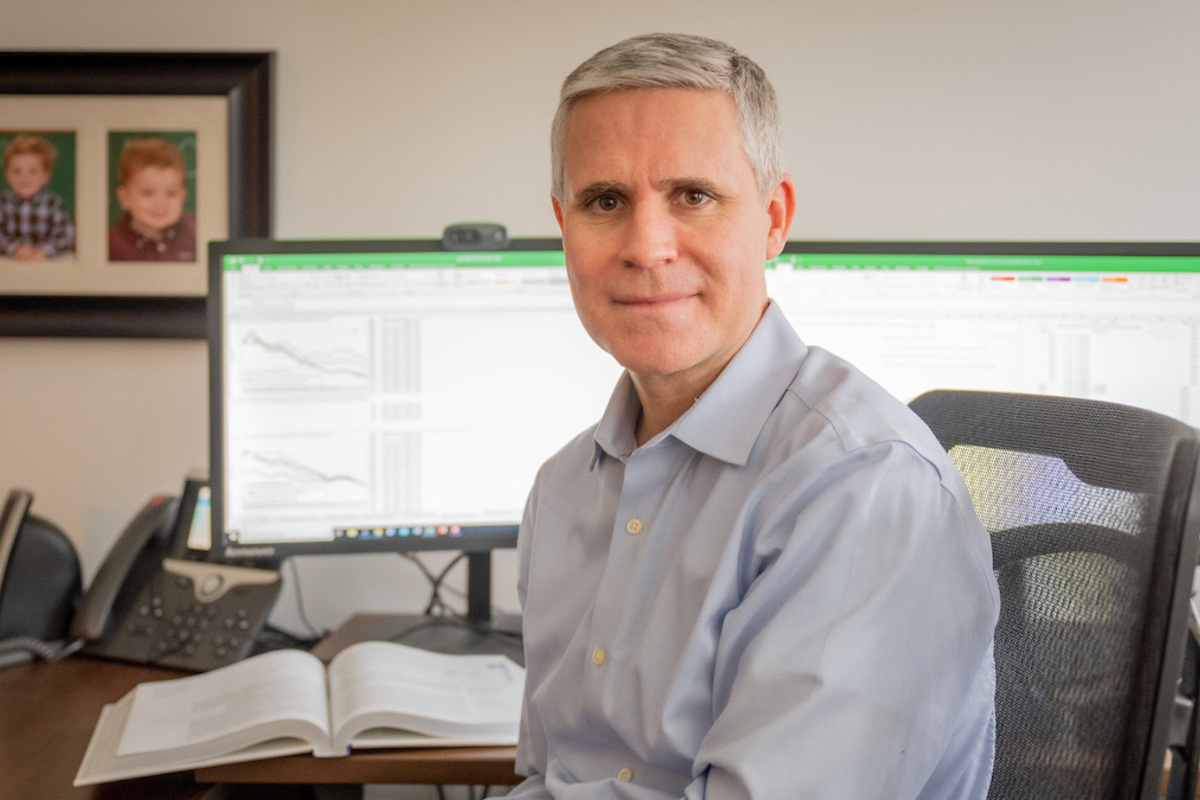
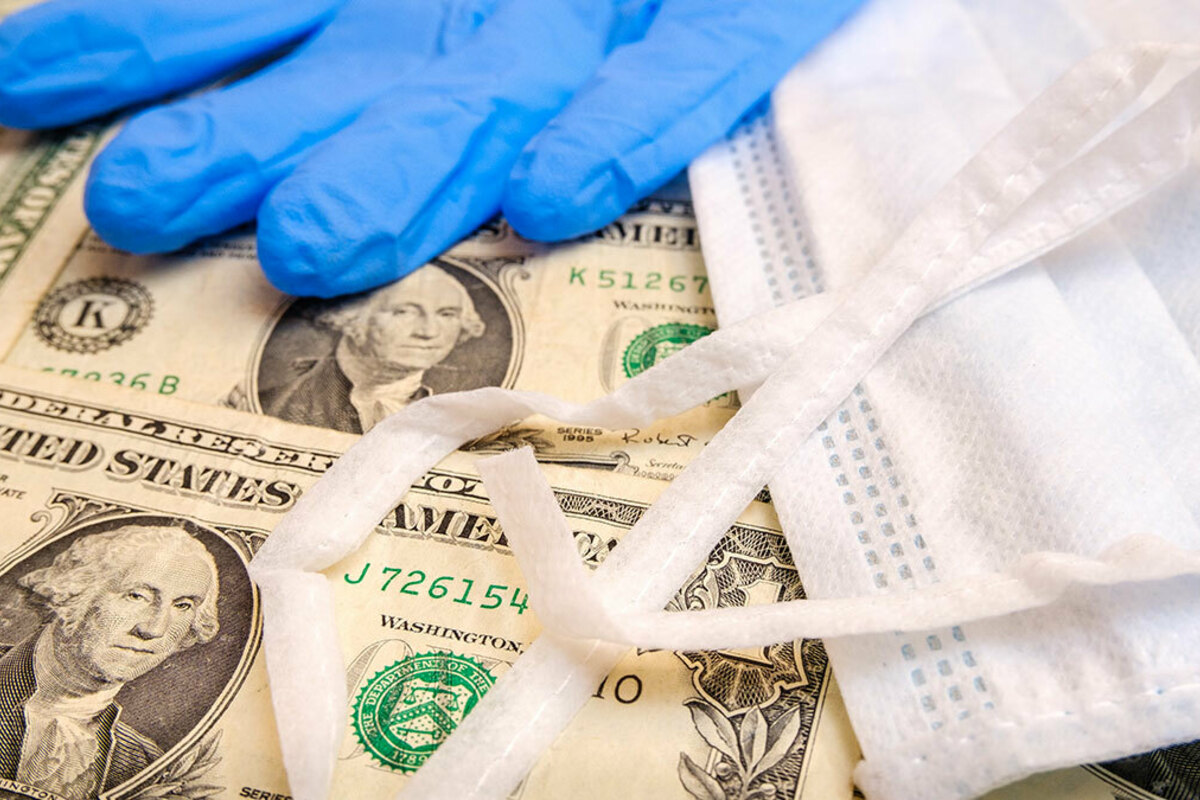
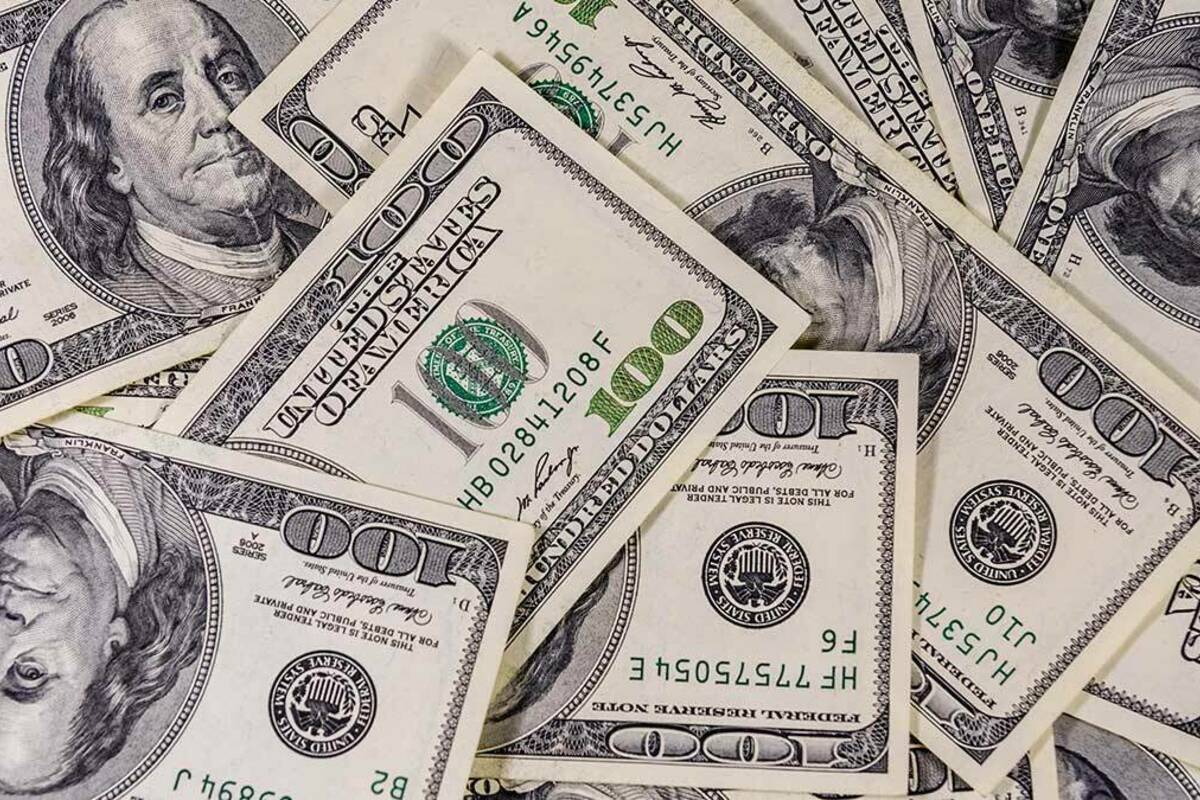
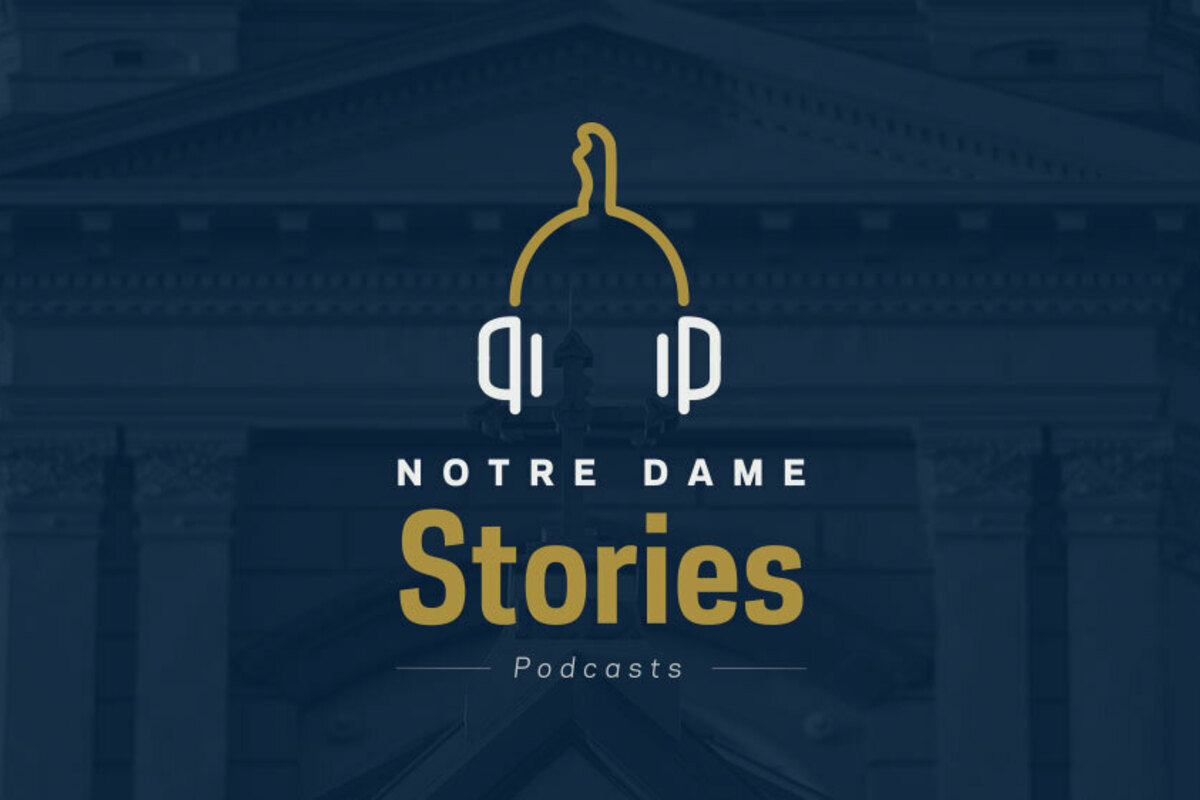
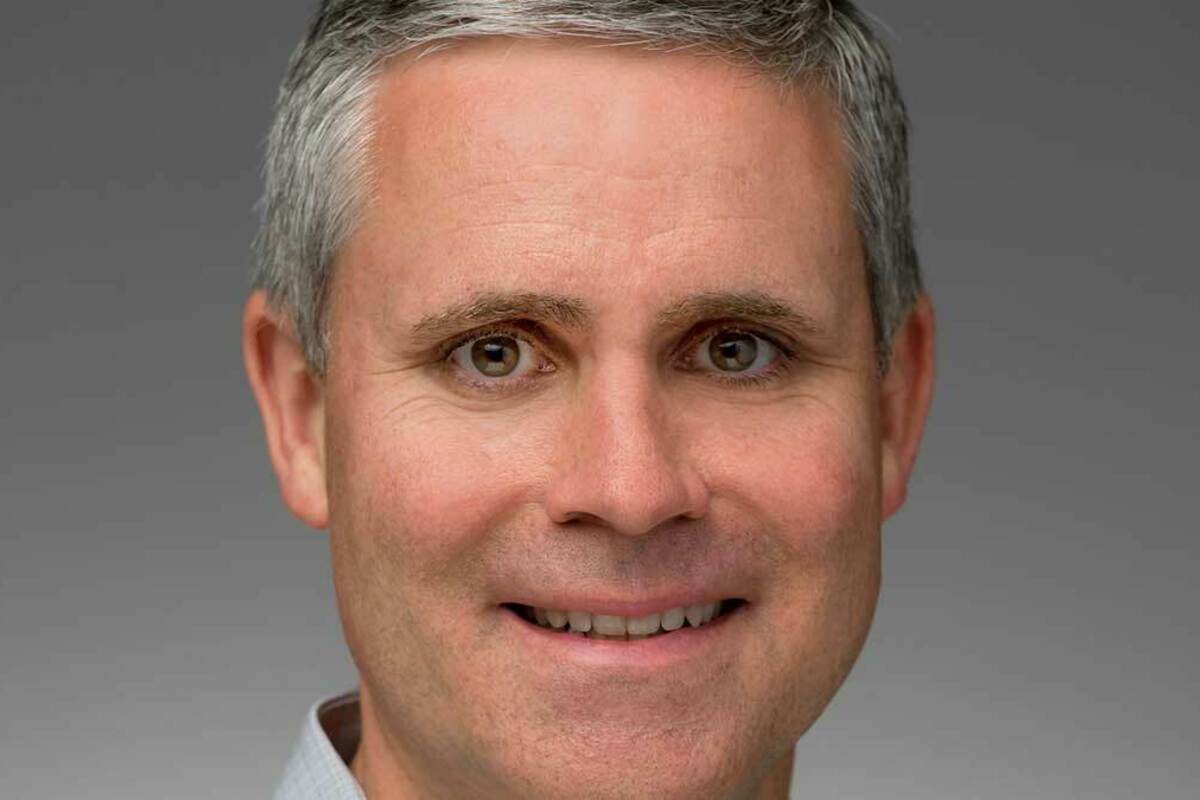

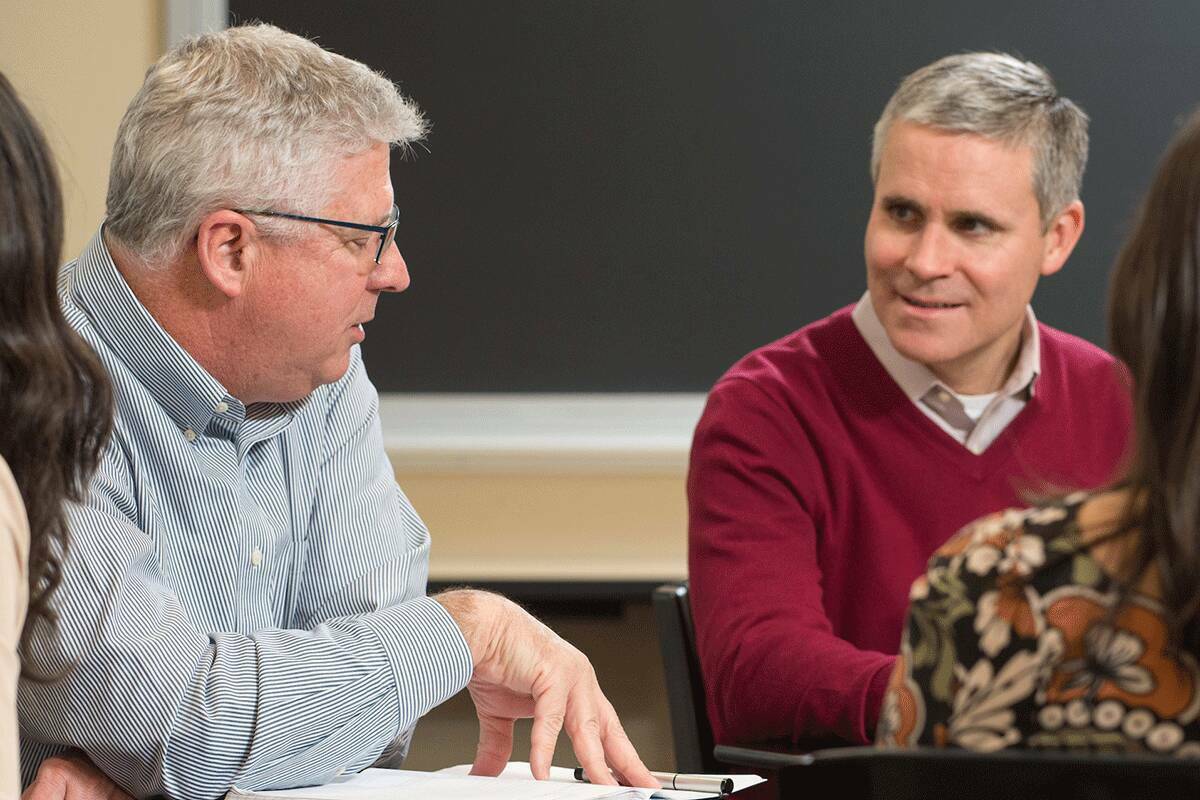


Inside Indiana Business
February 28, 2024
A lab at the University of Notre Dame wants the conversation on how to solve poverty to hinge on research—and it’s effort is about to broaden. Jim Sullivan, Ph.D., co-founded and directs the Wilson Sheehan Lab for Economic Opportunities, a research hub with a focus on answering questions with data that ultimately leads to tangible impact.

Inside Indiana Business
February 21, 2024
A new anti-poverty initiative launched at the University of Notre Dame with a $100 million gift from an alumni couple will look for new ways of thinking and talking about the issue. “Notre Dame’s Poverty Initiative is driven by a moral imperative to prioritize the needs of the poor and vulnerable, rooted in Catholic social teaching” said Notre Dame economist Jim Sullivan, co-founder and director of the Wilson Sheehan Lab for Economic Opportunities. Tracy Kijewski-Correa, director of the university’s Pulte Institute for Global Development, said the initiative is looking for new ways to manage the issue and express its impacts. “Poverty is not just material deprivation,” she said. “It affects everything and every part of a person.”

National Catholic Reporter
January 25, 2024
The University of Notre Dame announced on Jan. 23 that it will be launching a new academic initiative focused on studying and combating poverty.

phys.org
December 21, 2023
These findings were recently released in the Annual Report on U.S. Consumption Poverty: 2022, co-authored by James Sullivan, professor of economics and director of the Wilson Sheehan Lab for Economic Opportunities (LEO) at the University of Notre Dame; Bruce Meyer, the McCormick Foundation Professor at the University of Chicago Harris School of Public Policy; and Jeehoon Han, assistant professor of economics at Baylor University.
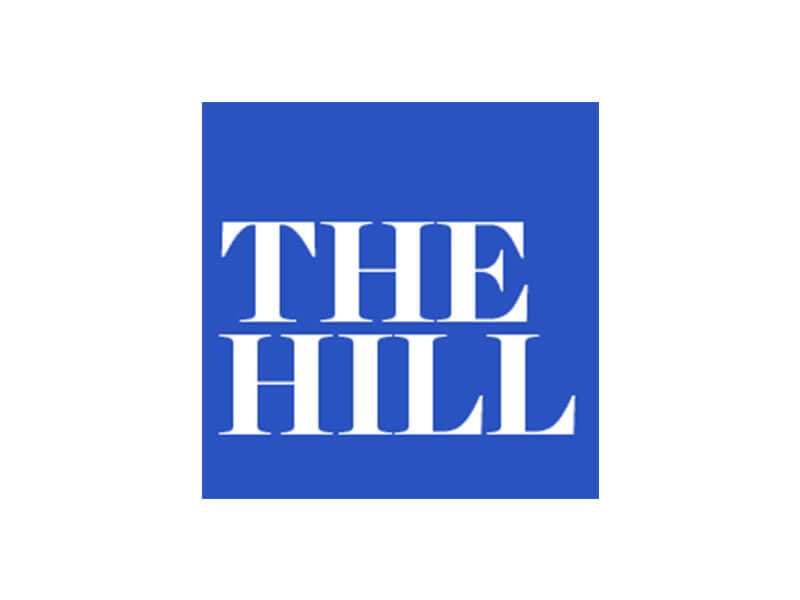
The Hill
August 29, 2023
Bill Evans is the University of Notre Dame Keough-Hesburgh Professor of Economics and co-founder of the Wilson Sheehan Lab for Economic Opportunities (LEO). David Phillips is a research professor of economics at LEO. Jim Sullivan is a professor of economics and LEO co-founder.
Local News Matters
July 25, 2023
“There really was not a rigorous response to that concern,” said James Sullivan, University of Notre Dame professor of economics and co-founder of the Wilson Sheehan Lab for Economic Opportunities, which aims to help the most vulnerable with its work. Lead author David Phillips said prevention is not a panacea for issues like health and substance abuse, which are often associated with “the most visible forms homelessness.”
SFGATE | Bay City News
July 22, 2023
"There really was not a rigorous response to that concern," said James Sullivan, University of Notre Dame professor of economics and co-founder of the Wilson Sheehan Lab for Economic Opportunities, which aims to help the most vulnerable with its work. "This really addresses that concern head on."

phys.org
July 13, 2023
David Phillips, a research professor in the Wilson Sheehan Lab for Economic Opportunities (LEO) within Notre Dame's economics department, and James Sullivan, a professor of economics and co-founder of LEO, found that people offered EFA were 81 percent less likely to become homeless within six months of enrollment and 73 percent less likely within 12 months, as reported in their study recently published by The Review of Economics and Statistics.
Ricochet Podcast
Audio
March 29, 2023
On this episode of Reaganism, host Roger Zakheim, Director at the Reagan Institute, speaks with Professor James Sullivan, Professor of Economics, University of Notre Dame, and Co-founder of the Wilson Sheehan Lab for Economic Opportunities. Prof. Sullivan and Roger discuss government policy towards poverty in America and the mistruths and misunderstandings surrounding poverty and being poor in America.

ABC News
February 18, 2022
The author cites a December 2020 study by the University of Chicago and the University of Notre Dame which found that "poverty has risen sharply, however, in recent months as some of the benefits that were part of the government relief package have expired.

The Hill
September 27, 2021
James Sullivan is the co-founder and director of the Wilson Sheehan Lab for Economic Opportunities (LEO), a Professor of Economics at the University of Notre Dame, and an affiliated researcher of the Abdul Latif Jameel Poverty Action Lab (J-PAL) at the Massachusetts Institute of Technology.
Deseret News
September 21, 2021
While some research suggests a decline in families’ circumstances since the government’s welfare reform emphasized work and education over unconditional aid, study authors Bruce D. Meyer of the University of Chicago, Jeehoon Han from Zhejiang University in China and James X. Sullivan of the University of Notre Dame believe that largely stems from under-reporting of the assistance single mothers receive.

The New York Times
September 15, 2021
The chart below, based on an analysis by Bruce Meyer of the University of Chicago’s Harris School of Public Policy and James Sullivan of the University of Notre Dame, shows no lasting progress in the official measure of poverty, but a rapid decline in two alternative measures.

Yahoo
September 14, 2021
Despite the increase in poverty, rates would have been much higher without intervention from the government, according to an analysis of data by James Sullivan at the University of Notre Dame’s Department of Economics and Bruce Meyer at the University of Chicago’s Harris School of Public Policy, as reported by Bloomberg.

CNN
September 14, 2021
The stimulus payments, meanwhile, helped keep a wide range of Americans out of poverty because they were sent to a broad group of people, said Jim Sullivan, an economics professor at the University of Notre Dame, who has tracked the effect of government aid on poverty rates throughout the pandemic.

Fortune
September 14, 2021
If not for government intervention, poverty would have been much higher, according to an analysis of real-time poverty data by James Sullivan at the University of Notre Dame’s Department of Economics and Bruce Meyer at the University of Chicago’s Harris School of Public Policy.

The Washington Post
September 14, 2021
“The federal government responded quickly and significantly. And it’s very clear that those efforts prevented a sharp rise in poverty,” said James Sullivan, an economics professor at the University of Notre Dame.

Marketplace
Audio
September 09, 2021
So the USDA report is good news, said Jim Sullivan, an economics professor at Notre Dame.

BBC News
July 15, 2021
James Sullivan, economics professor at the University of Notre Dame, said that families near the poverty line could see their income increase by more than 25% in the second half of the year.

Business Insider
July 14, 2021
"It's a good thing for Walmart and grocery stores," Jim Sullivan, an economics professor at the University of Notre Dame, told CNBC. "The retail sectors where middle- and lower-income families spend money are likely to benefit some from this."

CNBC
July 12, 2021
“It’s a good thing for Walmart and grocery stores,” said Jim Sullivan, an economics professor at the University of Notre Dame who is studying the impact of the coronavirus pandemic on Americans living in poverty.

Politico
May 07, 2021
One of the most striking things that’s come from having all this near real time data, according to Jim Sullivan, an economist at the University of Notre Dame, is seeing just how much of an effect government aid had on reducing poverty.

The Washington Post
April 29, 2021
Meanwhile, poverty rose to 11.7 percent in March, the highest level of the pandemic, according to research from the University of Chicago and University of Notre Dame, as Americans awaited the next round of stimulus relief.

Business Insider
April 24, 2021
Research from University of Chicago and the University of Notre Dame also shows that the poverty rate reached its highest rate so far during the pandemic in March, from 10.3% in March 2020 to 11.7% in March 2021.

The Washington Post
April 22, 2021
Poverty rose to 11.7 percent in March, its highest level of the pandemic, according to research from the University of Chicago and University of Notre Dame, as Americans awaited the next round of stimulus relief.

NBC News
April 21, 2021
James Sullivan, an economics professor and director of the Lab for Economic Opportunities at the University of Notre Dame and one of the research authors, said this was almost certainly a function of the combination of $1,200 stimulus payments that were distributed to most Americans, expanded unemployment benefits including benefits for gig and self-employed workers, and an extra $600 weekly benefit on top of existing state benefits.

Business Insider
April 21, 2021
Throughout the pandemic, researchers from Zhejiang University, University of Chicago, and the University of Notre Dame have tracked US poverty rates.

Politico
April 21, 2021
“The March 2021 estimates indicate that without additional aid many in the U.S. continued to suffer from the economic impacts from Covid-19, according to research released Tuesday by economists Jeehoon Han, from Zhejiang University, Bruce Meyer, from the University of Chicago, and James Sullivan of the University of Notre Dame. The projections didn’t capture benefits provided by the American Rescue Plan signed last month.”

Bloomberg
April 20, 2021
The March 2021 estimates indicate that without additional aid many in the U.S. continued to suffer from the economic impacts from Covid-19, according to research released Tuesday by economists Jeehoon Han, from Zhejiang University, Bruce Meyer, from the University of Chicago, and James Sullivan of the University of Notre Dame.

MarketWatch
April 20, 2021
Since spring of 2020, real-time poverty data in the U.S. has been tracked every month by economists Bruce Meyer, from the University of Chicago Harris School of Public Policy, and James Sullivan of the University of Notre Dame’s Department of Economics and the Wilson Sheehan Lab for Economic Opportunities.

Marketplace
Audio
March 26, 2021
The pandemic has affected Americans in different income brackets differently: People who worked low-wage service jobs before the pandemic are most likely to be in serious financial distress now, said Notre Dame economist James Sullivan.

CNN
March 23, 2021
The $600 stimulus checks and $300 weekly boost to unemployment benefits contained in Congress' December assistance package stemmed the rise in poverty in the second half of last year, according to researchers at the University of Chicago, University of Notre Dame and Zhejiang University.

Bloomberg
March 11, 2021
Meanwhile, more than 8 million Americans -- including many children -- fell into poverty in the second half of last year, according to an analysis by University of Chicago economist Bruce Meyer, University of Notre Dame’s James Sullivan and Zhejiang University’s Jeehoon Han.

Business Insider
March 11, 2021
Those drops aren't unexpected. Throughout America's pandemic year, poverty has fallen with each new stimulus package and increased unemployment benefits, according to research from economists at University of Chicago, University of Notre Dame, and Zhejiang University.
Economic Times
March 09, 2021
Data in the months since has shown poverty creeping back up, hitting 11.3 percent in January, according to the University of Chicago and the University of Notre Dame.

Forbes
March 06, 2021
A December study by the University of Notre Dame, the University of Chicago Harris School of Public Policy and the Wilson Sheehan Lab for Economic Opportunities found that nearly 8 million Americans have fallen into poverty since the start of the pandemic.

Forbes
February 27, 2021
A December study by the University of Notre Dame, the University of Chicago Harris School of Public Policy and the Wilson Sheehan Lab for Economic Opportunities found that nearly 8 million Americans had fallen into poverty since the start of the pandemic.

Yahoo
February 26, 2021
"That's a pretty big move over the course of one month," University of Notre Dame's James Sullivan and one of the authors of the study told Yahoo Money.

The Hill
February 16, 2021
James X. Sullivan is the Gilbert F. Schaefer College Professor of Economics at the University of Notre Dame.

The New York Times
February 14, 2021
Researchers at the University of Chicago and Notre Dame found there were five million fewer poor people in June than before the crisis.

Bloomberg
February 09, 2021
Covid-19 pushed the child poverty rate to 16.6% in December from 15.3% right before the pandemic began, according to an analysis from University of Chicago economist Bruce Meyer, University of Notre Dame’s James Sullivan and Zhejiang University’s Jeehoon Han.

The Washington Post
February 05, 2021
Federal aid to households actually decreased the poverty rate between March and June of 2020, but as certain benefits expired over the summer, millions fell back into poverty, including 2.3 million children under 17, according to a team of economists from the University of Notre Dame and the University of Chicago.

Yahoo
February 01, 2021
But in states that doled out benefits to less than 35% of unemployed residents, poverty increased by 1.3% in 2020, a study from the University of Chicago and Notre Dame found.

Reuters
January 27, 2021
A survey last week by professors at the University of Chicago and the University of Notre Dame showed poverty increased by 2.4 percentage points to 11.8% in the second half of 2020, boosting the ranks of the poor by 8.1 million people.

Bloomberg
January 27, 2021
An additional 8 million people fell into poverty during the second half of 2020, more than double the sharpest annual rise in poverty since the 1960s, according to a study by economists at the University of Chicago and the University of Notre Dame released on Monday.

CNN
January 26, 2021
More than 8 million Americans fell into poverty during the final six months of 2020, according to real-time estimates published by economists at the University of Chicago, University of Notre Dame and the Lab for Economic Opportunities.

Fox News
January 26, 2021
The report, released by economists at the University of Chicago and University of Notre Dame, found that the nation's poverty rate increased by 2.4 percentage points between June and December, surging from 9.3% to 11.8%.

Forbes
January 26, 2021
According to a study released Monday by economists Bruce Meyer from the University of Chicago and James Sullivan of the University of Notre Dame, America’s poverty rate increased by 2.4 percentage points over the final six months of 2020.

Business Insider
January 25, 2021
A study by University of Notre Dame and University of Chicago economists found that 8 million Americans fell into poverty as government benefits have expired.

Newsweek
January 25, 2021
Economists from the University of Chicago and University of Notre Dame said the nation saw the largest annual increase in poverty in nearly 60 years.

Bloomberg
January 25, 2021
Economists Bruce Meyer, from the University of Chicago, and James Sullivan of the University of Notre Dame found that the poverty rate increased by 2.4 percentage points during the latter half of 2020 as the U.S. continued to suffer the economic impacts from Covid-19.

CNBC
January 23, 2021
Children are disproportionately represented among the poor, and their plight has grown worse since the summer, according to James Sullivan, an economics professor at the University of Notre Dame who’s tracked poverty rates during the pandemic.

CNN
January 17, 2021
Nearly 8 million more Americans have joined the ranks of the poor since June, according to researchers from the University of Chicago and University of Notre Dame.

CNN
January 14, 2021
Nearly 8 million more Americans have joined the ranks of the poor since June, according to researchers from the University of Chicago and University of Notre Dame.

CNBC
January 01, 2021
In June, there were almost 5 million fewer Americans among the ranks of the poor than at the start of the year, before the pandemic, according to data published by researchers at the University of Chicago, University of Notre Dame and Zhejiang University.

The Washington Post
December 31, 2020
Still, according to a recently published report by the University of Chicago and the University of Notre Dame, poverty has risen each month since June, to 11.7 percent in November.

Our Sunday Visitor
December 31, 2020
Timothy P. O’Malley, Ph.D., is the director of education at the McGrath Institute for Church Life at the University of Notre Dame.

Business Insider
December 31, 2020
A new study from the University of Chicago and the University of Notre Dame indicated 7.8 million people had fallen into poverty since late July.

The Hill
December 31, 2020
Poverty has risen every month since June, according to a report from scholars at the University of Chicago, the University of Notre Dame and the Wilson Sheehan Lab for Economic Opportunities.

The Washington Post
December 31, 2020
The economic impact of the pandemic has been swift for many families this year as nearly 8 million Americans have fallen into poverty since the summer, according to data from researchers at the University of Notre Dame and University of Chicago.

CNN
December 31, 2020
Nearly 8 million Americans have joined the ranks of the poor since June, according to researchers from the University of Chicago and University of Notre Dame.

CBS News
December 17, 2020
Meanwhile, almost 8 million Americans have fallen into poverty since the start of the pandemic through November, according to new data released by the University of Chicago and the University of Notre Dame.

The Washington Post
December 17, 2020
One recent analysis, from researchers at the University of Chicago and the University of Notre Dame, estimated that nearly 8 million Americans have fallen — or, more accurately, been pushed — into poverty since June.

CBS News
December 17, 2020
James X. Sullivan, a professor of economics at Notre Dame, and Bruce D. Meyer, an expert in poverty and inequality and professor at the University of Chicago's Harris School of Public Policy, are tracking the nearly real-time data on a dashboard that registers the economic impact of COVID-19.

The Washington Post
December 17, 2020
Nearly 12 percent of the country is living in poverty, up 2.4 percentage points since June and the biggest spike in six decades, according researchers at the University of Chicago and the University of Notre Dame.

CNBC
December 17, 2020
Meanwhile, millions of Americans have slipped into poverty — 6 million to 8 million, according to reports from Columbia University, University of Chicago and Notre Dame.

The Washington Post
December 16, 2020
The poverty rate jumped to 11.7 percent in November, up 2.4 percentage points since June, according to new data from the University of Chicago and Notre Dame.

Forbes
December 16, 2020
“There are two ways to counteract this upward trend in poverty: One is a dramatic improvement in the labor market. The other is more support from the federal government,” said James X. Sullivan, a Notre Dame professor.

The Hill
December 16, 2020
The national poverty rate rose by 2.4 percentage points from 9.3 percent in June to 11.7 percent in November, putting 7.8 million people below the poverty line, according to the paper from Notre Dame’s James X. Sullivan, Chicago’s Bruce D. Meyer, and Jeehoon Han of Zhejiang University.

Business Insider
December 16, 2020
In the past five months alone, some 7.8 million Americans fell into poverty, according to a new report released Wednesday by researchers at the University of Chicago and the University of Notre Dame.

CNBC
December 16, 2020
Nearly 8 million people joined the ranks of the poor between June and November, according to a separate paper published Tuesday by researchers at the University of Chicago, University of Notre Dame and Zhejiang University.

The Washington Post
December 16, 2020
The poverty rate jumped to 11.7 percent in November, up 2.4 percentage points since June, according to new data released Wednesday by researchers at the University of Chicago and the University of Notre Dame.

Forbes
December 16, 2020
7.8 million. That’s how many Americans have fallen into poverty since June as critical CARES Act benefits expired, according to new research from the University of Chicago and the University of Notre Dame.

The New York Times
December 14, 2020
According to estimates by Bruce D. Meyer of the University of Chicago, James X. Sullivan of the University of Notre Dame and Jeehoon Han of Zhejiang University, 11.4 percent of Americans subsisted with incomes below the official poverty line by October, up from 9.3 percent in June.

CNN
December 07, 2020
If not for the stimulus checks, the US poverty rate would have been 1.1 percentage points higher in June, according to research done by Meyer, the University of Chicago economist, along with economists at the University of Notre Dame and Zhejiang University.
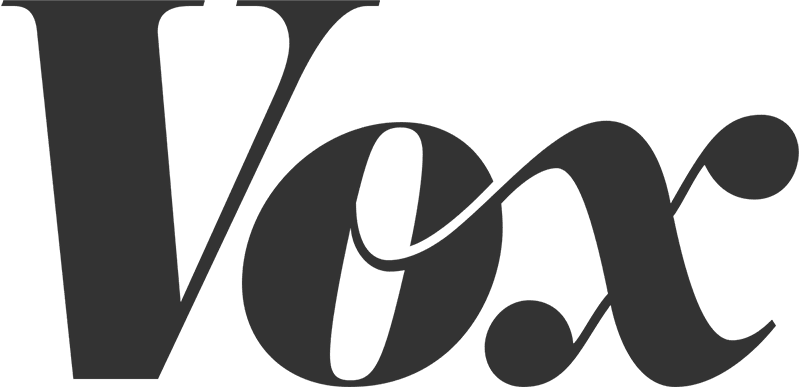
Vox
December 03, 2020
Jeehoon Han of Zhejiang University, Bruce Meyer of the University of Chicago, and James X. Sullivan at the University of Notre Dame have their own set of real-time measures, and while they do not calculate projections for January 2021, they tell the same story as the Columbia researchers about what happened from January to October 2020.

BBC News
December 03, 2020
Without action, "the short-term impact is going to be more economic deprivation," says James Sullivan, economics professor at the University of Notre Dame, whose research has found that roughly 7 million people have fallen into poverty since May, many of them African American, children and those without university degrees.

Bloomberg
November 28, 2020
Keeping a flow of government assistance open to poorer families will be crucial to ensure that the recovery from the pandemic doesn’t further exacerbate inequality, according to James Sullivan, an economics professor at the University of Notre Dame in Indiana.
Featured in "What Would You Fight For"